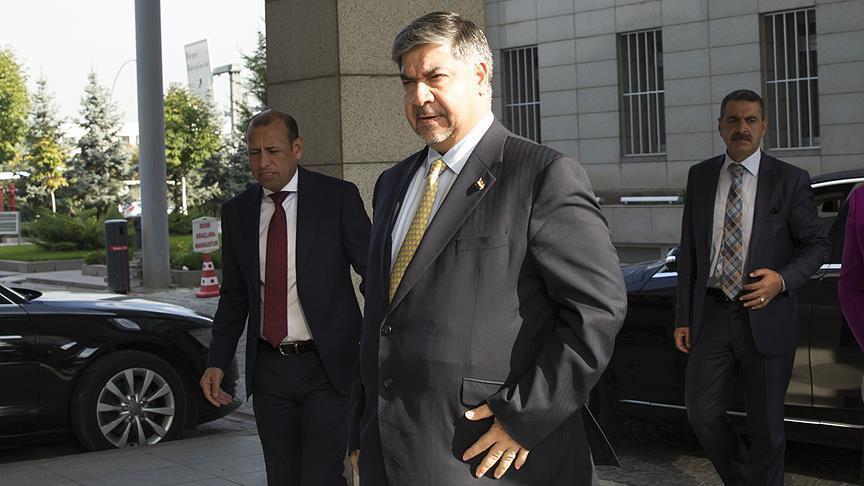
By the end of the last week, Sudan announced arrangements to confront what it called “potential threats ” from Egypt and Eritrea near its borders with the latter.
Meanwhile, Cairo avoided responding immediately to the claim, declaring through its Foreign Ministry spokesman Ahmed Abu Zeid that the Egyptian position on Sudan has been “expressed by Foreign Minister Sameh Shoukry on several occasions.”
Ibrahim Mahmoud, assistant to the Sudanese president and his deputy in the ruling National Congress Party, said that the authorities received security information about possible threats, which may come from Egypt and Eritrea in the Eritrean area of Sawa.
Mahmoud explained that the meeting of the leadership of the ruling party, which began on Wednesday evening and concluded early Thursday, directed the continuation of security arrangements on the eastern border of the country, to face potential threats from the two countries.
In turn, Cairo avoided escalation with Khartoum. The official spokesmen of the Egyptian Ministries of Defense and Foreign Affairs refused to comment on the Sudanese accusations.
In a press conference with his Tanzanian counterpart on Thursday, Shoukry said that Egypt “has always the hope that relations with Sudan will be satisfactory to take into account the aspirations and interests of the two peoples in accordance with previous agreements.”
“This requires efforts and policies of openness… This has always been the aspiration of Egypt,” he stated.
Sudan had closed its eastern border with Eritrea and deployed thousands of troops near the joint border after President Omar al-Bashir announced a state of emergency in the states of Kassala and North Kordofan on December 30.
The official statements at the time said that the closure of the border, and the transfer of troops to the east of the country, aimed at fighting smugglers and traffickers.
However, Mahmoud revealed for the first time on Thursday that they received “security information about possible threats, which may come from Egypt and Eritrea.”
In the same context, Ethiopia and Sudan have agreed to work together to tackle peace and security-related challenges in the region this week. The move comes after both Ethiopia and Sudan closed their borders with Eritrea.The move follows Sudan’s Defense Minister’s visit to Addis Ababa to discuss border security issues with Ethiopia’s Prime Minister Hailemariam Desalegn.
Speaking to journalists, Sudan’s Minister of Defence Imad Aldin Adawin said that whatever challenges one state faces, is a concern for both sides and mutual efforts must be exerted to tackle any threats.
Prime Minister Desalegn expressed Ethiopia’s determination to defend any threats posed by the country’s national interests, stating that long-standing strategic partnership between Sudan and his country will further be strengthened.
Reports suggest since the construction of the Grand Ethiopian Renaissance Dam begun, the relationship between Sudan and Ethiopia has a level that is an all-time high.
On the other side,Earlier this week;Abdel Fattah al-Sisi received his Eritrean counterpart, Isaias Afwerki, to discuss bilateral relations and coordination of efforts on all issues related to the situation in the Horn of Africa.
According to observer, Egypt, through extensive cooperation with Eritrea, is seeking greater influence in the Horn of Africa, which is strategically important for its national security, with the growing Turkish and Qatari presence there, and the current tensions with Ethiopia and Sudan.
Relations have been soured between Cairo and Khartoum by disputes over the ownership of the Halayeb Triangle border area and over the use of the water from the River Nile that passes through their territories.
A few days ago Sudan has recalled its ambassador from Egypt for consultations and Egypt’s foreign ministry said it is evaluating the situation in order to take “appropriate action”.
Sudan has accused Cairo of political meddling and banned imports of Egyptian agricultural products last year.
Sudanese Foreign Minister Ibrahim Ghandour said in earlier statements that there are two scenarios to resolve the dispute with Egypt over Halayeb; the first is through dialogue as Egypt did with Saudi Arabia over the Red Sea islands of Tiran and Sanafir or by resorting to International arbitration as Egypt did with Israel over Taba.
Two weeks ago, the Egyptian authorities passed a number of resolutions to strengthen its presence on the islands including filing a complaint with the UN Security Council against Sudan.
In response, Sudan has, on its part, expressed concern over the border agreement between Cairo and Riyadh concerning the Red Sea islands of Tiran and Sanfir, which they claim entrenches Egypt’s occupation of Halayeb.



